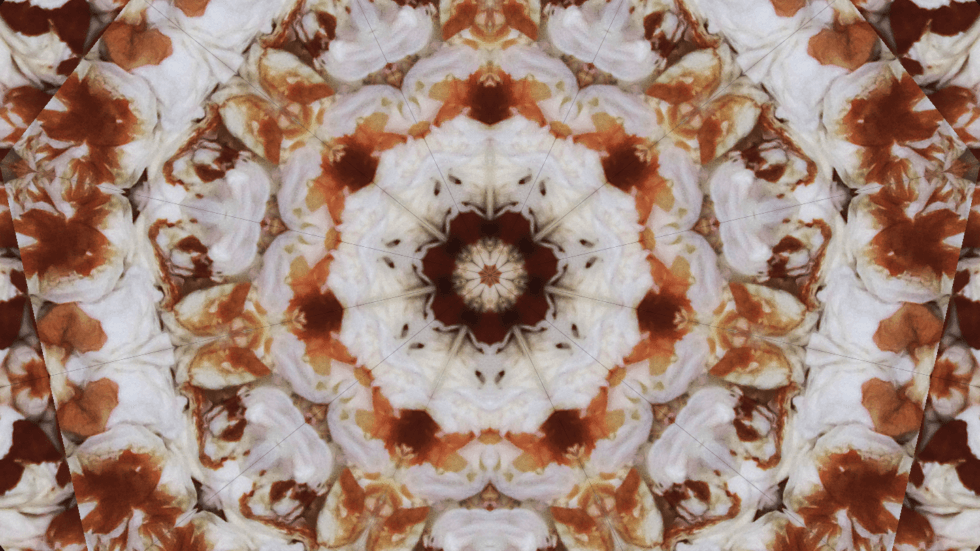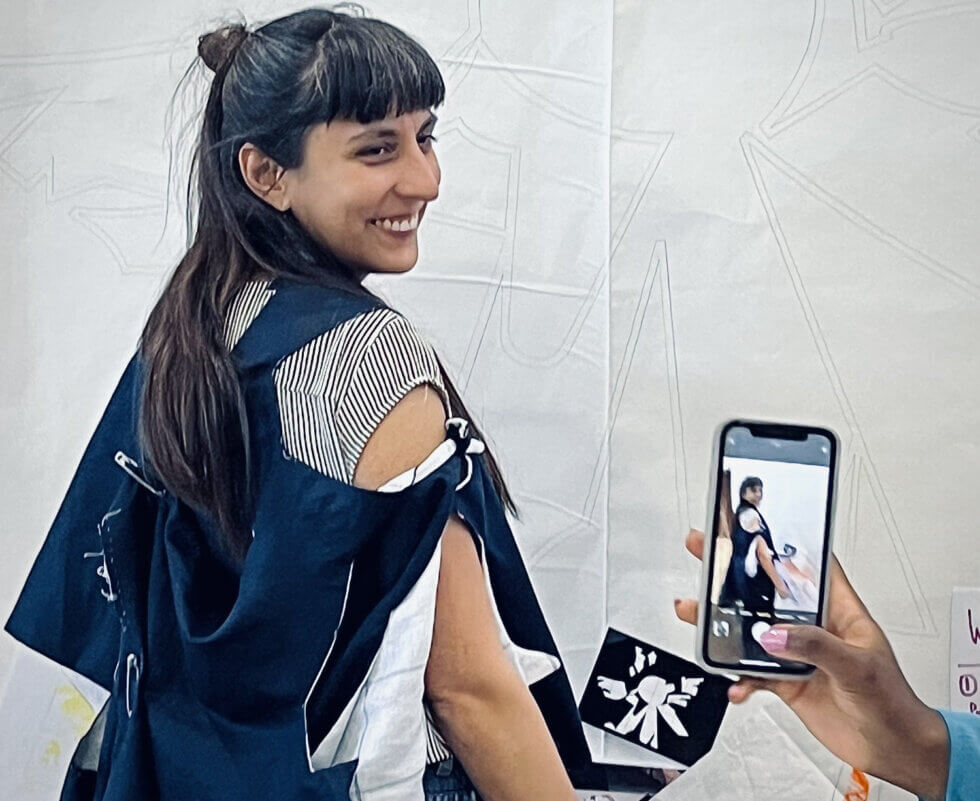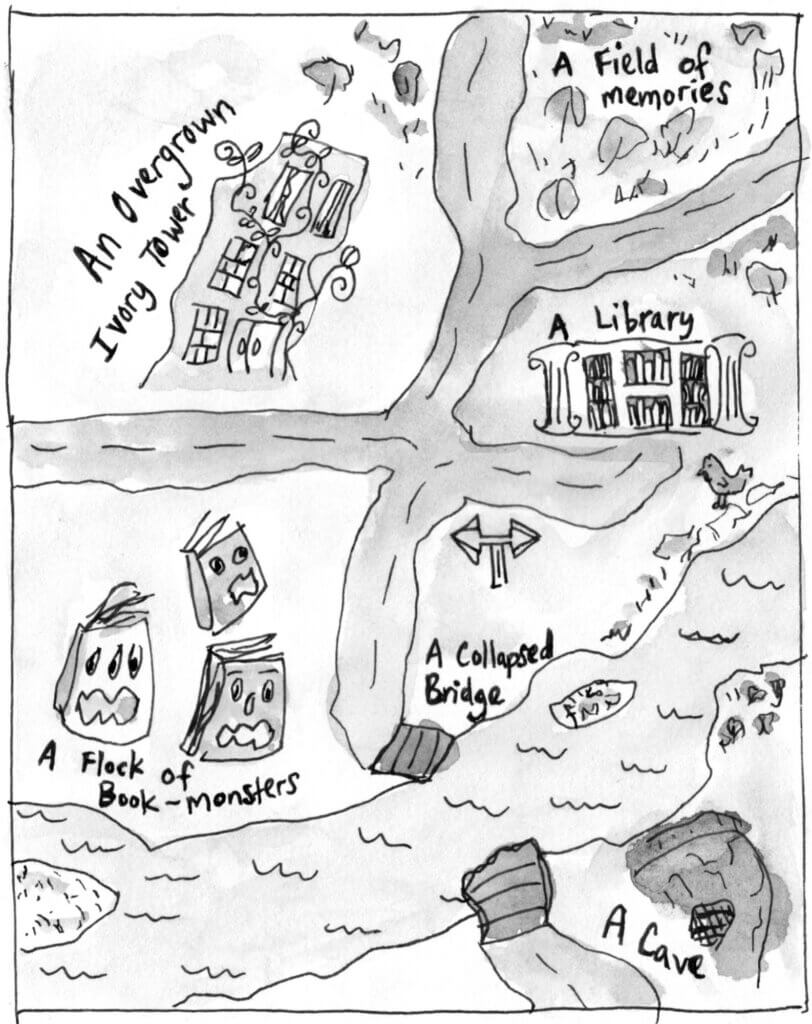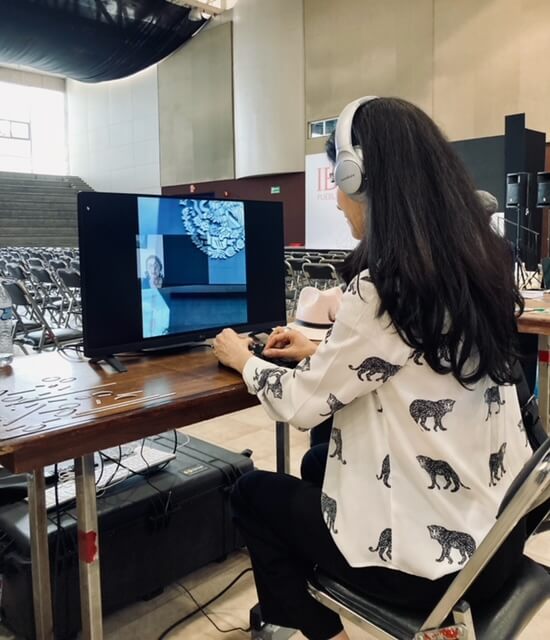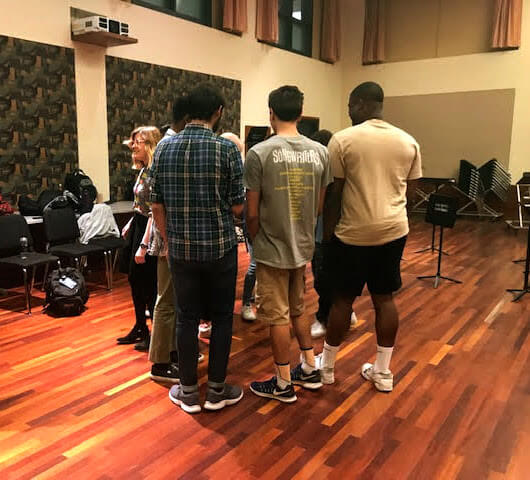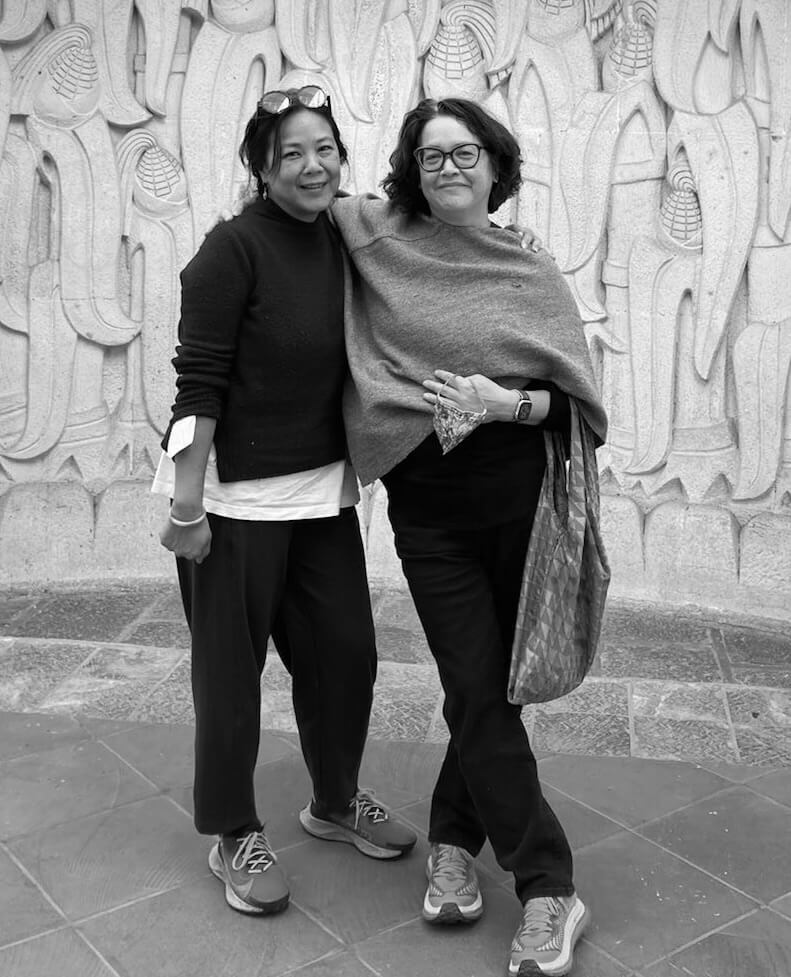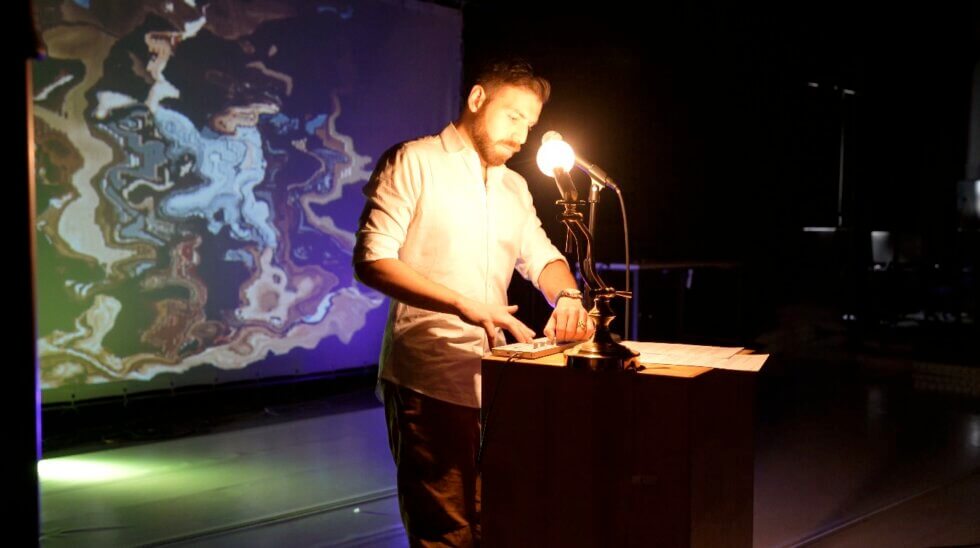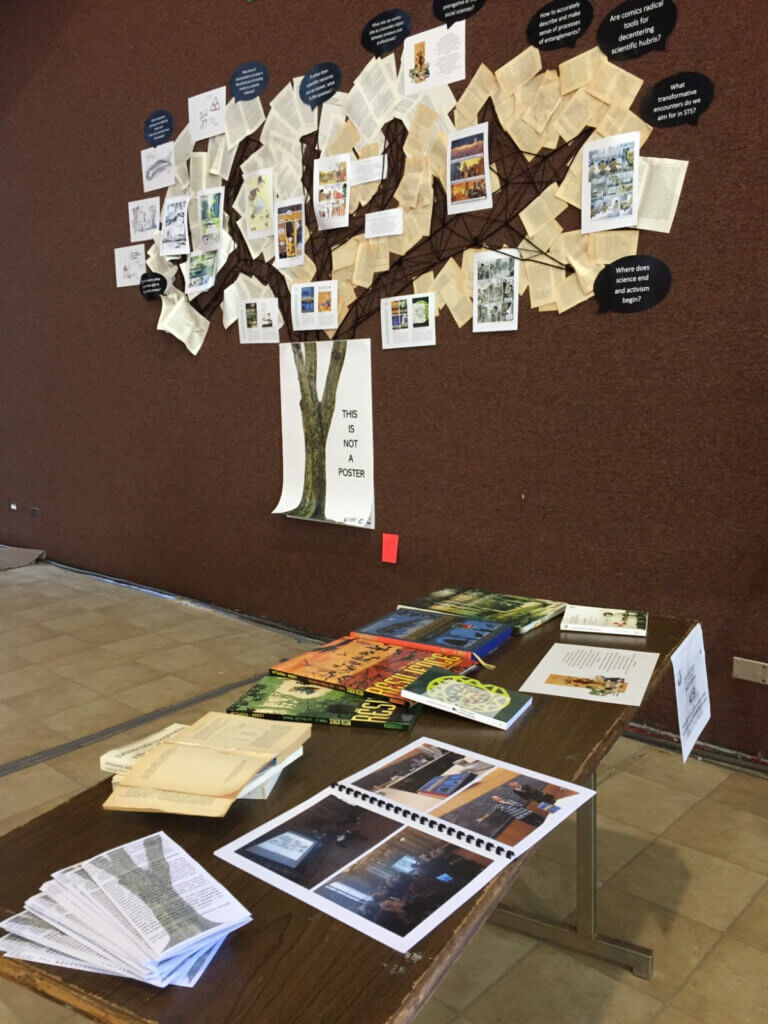
STS Making and Doing Awards 2022: (multiple winners)
Outstanding Making & Doing Award:
No One Is Obliged To See: A Bloody Trap
Clarissa Reche (State University of Campinas – UNICAMP)
The Committee wrote, Clarissa Reche’s No One Is Obliged to See: A Bloody Trap manages to be both playful and grounded, inviting and mysterious, as she grapples with ethnographers’ engagement with (and obscuring of) indigenous menstruation technologies. She invites viewers to enact their agency, forcing us to think about the implications of knowing, and consequently, not being able to unknow. We are confronted by the visceral and embodied experience of menstruation, all animated by a feminist and decolonial knowledge politics. A delight to engage with, and we find ourselves thinking about it, describing it to others, and processing it again and again. A bloody trap, indeed.
A still from the moving image audience members were initially presented with in No One is Obliged To See: A Bloody Trap
Making & Doing Awards:
Fit But You Know It: Workshopping Methods for Decolonising Fashion Practice
Olivia Hegarty, Cian O’Donovan, Luke Stevens (University of the Arts, London)
The Committee wrote, This workshop considered how we fit textiles on our historically and culturally informed bodies, conceptualizing fit as a tacit way of knowing that, unexamined, supports and maintains colonial epistemologies. By offering participants playful but conceptually powerful strategies to make these tacit practices explicit, Hegarty, O’Donovan and Stevens invited participants to remember and imagine alternative material practices and ways of knowing–from those inscribed in a sewing pattern to those enacted by our grandmother’s hands.
Workshop participant Cecilie Hilmer fits ‘abstract garment’ in Fit But You Know It Making and Doing Session.
Imagining Alternative Academic Futures Through a Mapping Game / Imaginando Futuros Académicos Alternativos a Través de un Juego
Heather Rosenfeld (Smith College), Denia Djoki, (University of Michigan, Ann Arbor), Claudia Schwarz-Plaschg
The Committee wrote, Imagining Alternative Academic Futures Through a Mapping Game is a thoughtfully designed intervention that manages to be deeply conceptual and at the same time playful, accessible, and generative. Within a broader interest in games and gaming as a way of knowing together, the project’s feminist attention to care combined with the focus on academic futures is both timely and necessary.
A detail from the mapping game.
Encountering the Border Laboratory: A BorderTech Digital Ethnography in/ with/ for the Mexican Borderlands
Danielle Kabella, María Torres Martínez, Octavio Mucino-Hernandez, Lindsay Adams Smith, Ben Gansky (Arizona State University)
The Committee wrote, The exhibition Encountering the Border Laboratory featured an impeccable and thought-provoking array of ethnographic and digital strategies in service of understanding ‘migrant border lifeways.’ Cutting across themes of cultural urgency in contemporary Mexico, the project is sensorially immersive (mixing vision, sound and touch) and offers important glimpses of life across Mexico’s political and cultural borders, with their apparently chaotic amalgamation of the social and technological.
A conference goer experiences the Border Laboratory at 4S Cholula.
Found STS: Doing STS through performance
Sophia Efstathiou, (Norwegian University of Science & Technology – NTNU)
The Committee wrote, This workshop stimulates and situates STS thinking through play. Participants find STS in a set of exercises that invite them to embody concepts, enact classification and care practices, ‘inscribe’ technologies with vices and virtues, explore privacy, and experiment with ‘response-ability’ through performed movement. Efstathiou makes these exercises available on her website (https://www.ideobics.com/shake-exercises), a contribution to growing interest in embodied experimentation and critical pedagogy within STS.
Playing the Response-Able Walk exercise with Sophia Efstathiou at Cornell in 2019.
Honorable Mentions:
(A13) Meshworking: A feminist-decolonial workshop in visualizing distributed-togetherness and contemporary entrepreneurial knowledge-production
Nadine Tanio (University of California, Irvine); Jade Vu Henry (University College London); Lisa Lehner (Cornell University); Christine Maria Kaiser (School of Creative Media – City University Hong Kong); Michael Leung (School of Creative Media); Helen Beetham (University of Wolverhampton); Megan Olinger, Riar Rizaldi, Chen Huang, Anton Dragan Maslic (City University of Hong Kong); Kay Mei Ling Beadman
The Committee wrote, In 2019, the project members began knitting— first with digital bytes, paper, ink, paint and eventually yarn—the different connections and encounters found outside of 4S New Orleans. This knitting process continued through the years as these connections lasted through time and generated knowledge. This project visualizes how assemblages can be generated through encounters, and demonstrates knowledge as not only an issue of labs or academia but also of human and non-human encounters on the margins.
Jade Vu Henry and Nadine Tanio, two members of the Meshworking collective.
(A16) Do Graphics Processing Units Have Politics? A Performance-based Inquiry
Ben Gansky, Arizona State University; Shawn Lawson, Arizona State University; Colleen Pulawski, Free Machine
The Committee wrote, This multimedia, bilingual video presentation of a performance/lecture implodes (Dumit 2014) the now-ubiquitous Graphics Processing Unit (GPU), explaining what the GPU does, tracing its history, and contextualizing its past and current entanglements. The Committee warmly encourages Gansky and conference organizers to collaborate and present the live performance during a future 4S conference.
Ben Lansky performing Do Graphics Processing Units Have Politics?
Audience Commendation for Making & Doing:
(A19) Entering Into Resonance: Vibrations around a common world from encounters between the 9th art and science
Pierre Delvenne, Lucas Bechoux, Wim Decock, Sarah Delvaux, Catherine Fallon, Jean-Baptiste Fanouillère, Colin Glesner, Luce Lebrun, Valentine Meens, Céline Parotte, Nicolas Thirion, François Thoreau, Helene Dodion (University of Liège); Valérie Beniest, (Dargaux); Emmanuel Lepage, Wilfried Lupano, Léonard Chemineau (Comic authors)
The Committee wrote, Audience members overwhelmingly commended this project, which positioned visual narratives at the center of technoscientific thinking. Audiences appreciated how the project’s handmade tree mural of wool, knots, fragments of books, and traces of collective artistic performances enlivened the Making and Doing session, elevated the imagination, and invited them into discussions across technoscience, science fiction and visual narrativity.
The Entering Into Resonance tree mural and materials at 4S Cholula.

